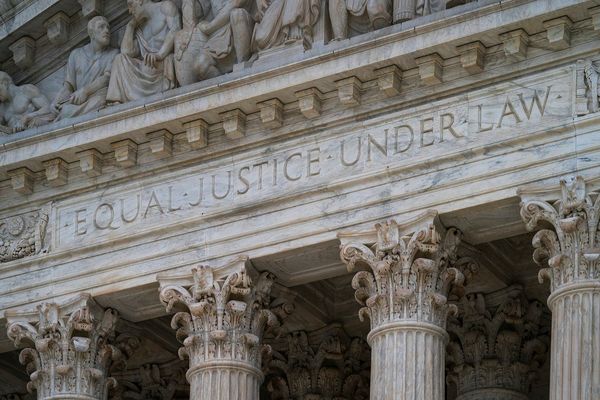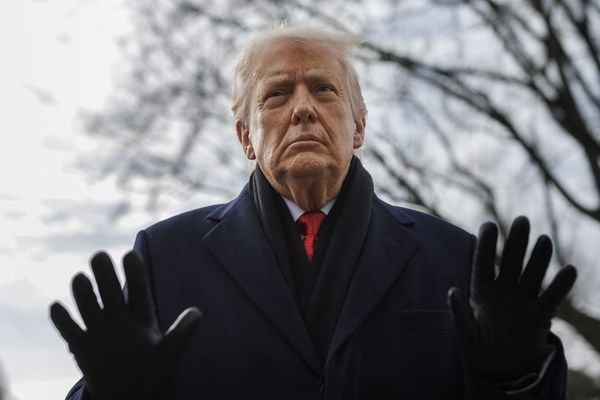For the first time in Colombia's history, the left, led by former Bogota mayor Gustavo Petro, could win the presidential election set to begin Sunday. If it prevails, Afro-Colombian environmental and human rights activist Francia Marquez would become vice president. A victory would mark a turning point for a country that has been plagued by social inequalities and historically governed by conservatives.
In recent weeks, Marquez has consistently appeared in public wearing brightly coloured traditional Afro-Colombian outfits. As a vice-presidential candidate in the presidential election, she always chants the same message: "It's time to move from resistance to power!"
Within the space of just a few months, Marquez has managed to shake up Colombian politics, historically dominated by conservatives, by bringing racism and social inequality to the forefront, issues that were previously absent from the campaign debate. She has thus become a symbol of change for a new generation of voters.
The changed debate could well bring a political shift. Colombians go to the polls Sunday to cast their votes in the first round of the presidential election and the left-wing Petro, a former guerilla and mayor of Bogota who chose Marquez as his running mate, is the favourite to win. He is expected to garner 41 percent of the vote according to the latest polls.
Petro and Marquez are running against the right-wing candidate Federico Gutierrez, a former mayor of Medellin, who is expected to gain around 27 percent support. They also face the independent and outsider candidate Rodolfo Hernandez, who won endorsement from the French-Colombian former candidate and ex-FARC hostage Ingrid Betancourt on May 20.
An activist for Afro-Colombian rights
There is nothing in Marquez’s past to suggest that she would embark on a political career. Born in 1981 in a small village in the southwestern Cauca region of Colombia, she grew up alone with her mother. Pregnant at 16 with her first child, she was first forced to work in a gold mine a few kilometres from home to support her family and then hired as a maid.
However, activism is just in some people’s genes, and Marquez is one of them. In 1996, when she was just 15, she learned that a multinational company wanted to launch a project to extend a dam on the region's main river, the Ovejas, which would have a major impact on her community.
Living on the banks of the river since the 17th century, the Afro-Colombian community has been practicing agriculture and artisanal mining, its main sources of income, for generations.
A 500-kilometre walk for the environment
Learning about the project marked the beginning of Marquez's long struggle to defend the rights of Afro-Colombian communities and preserve their land. For the past 20 years, she has been fighting relentlessly against the multinational companies that exploit the area around the Ovejas river and sometimes force people to leave it.
Marquez didn’t become widely known until 2014. At that time, she was targeting the illegal miners who had set up along the river, digging for gold and, above all, abundantly using mercury – an element that separates gold from water but also contaminates water and destroys biodiversity. In protest, Marquez organised the "turban march", which saw 80 women gather together to walk from Cauca to Bogota, a 10-day, 500-kilometre journey. The group demonstrated in front of the interior ministry for almost 20 days. In the end, the activist and future electoral candidate won, as the government pledged to destroy all the illegal farms around the Ovejas.
Since then, Marquez, who now has a law degree, has held numerous forums, lectured in universities and delivered speeches before political figures and NGOs. She was awarded the Goldman Prize, the equivalent of the Nobel Prize for the environment, in 2018 for her efforts. The following year, she appeared on the BBC’s list of the 100 most influential women in the world.
"I am someone who raises my voice to stop the destruction of rivers, forests and moors. I am someone who dreams that one day human beings will change the economic model of death, to make way for building a model that guarantees life," she writes on her website.
"Our governments have turned their backs on the people"
Marquez finally decided to enter politics in 2020 and made no effort to hide her ambition: "I want to be a candidate for this country. I want the population to be free and dignified. I want our territories to be places of life," she tweeted. That same year, she launched her movement "Soy porque somos" ("I am because we are"). In March 2022, she ran in the presidential primaries of the left-wing "Historic Pact" coalition. Marquez surprised everyone by coming in third, prompting Petro to choose her as his running mate.
She has made the fight to preserve Afro-Colombian lands a central part of her political campaign, constantly harkening back to her roots. "I am an Afro-Colombian woman, a single mother of two who gave birth to her first child at the age of 16 and worked in households to pay the bills. But I am also an award-winning environmental activist. And above all, a lawyer who could become Colombia's first Black vice president," she says at numerous meetings.
"Our governments have turned their backs on the people, on justice and on peace," she says. "If they had done their job properly, I wouldn't be here."
"Within the population, there has been a lot of popular anger in recent months directed towards the political class, particularly linked to the Covid-19 pandemic," explains Olga Lucia Gonzalez, an associate researcher and specialist on Colombia at the University of Paris-Diderot. "Francia Marquez comes from civil society and not from the traditional political elite. This is an argument that she plays on, and that goes greatly in her favour."
"But above all, she is a woman, Black, Afro-Colombian, and she brings with her issues that until now have been totally forgotten, like the relationship to colonialism, sexism, racism," she continues.
Marquez is not the only Afro-Colombian candidate in this presidential election – there are also Caterine Ibarguen and Zenaida Martinez. Together, they want to fight against the double discrimination faced by women who are Black. This discrimination is reflected in Colombia's political life: There is only one Black woman in the government and only two are members of parliament.
This in a country that has the second-largest population of African descent in Latin America. Official census data indicate that Afro-Colombians represent over 6.2 percent of Colombia's population, a figure demographers say is grossly underestimated. Afro-Colombian and indigenous communities continue to face disproportionate levels of poverty, violence and land expropriation. According to government findings, about 31 percent of the Afro-Colombian population lives in poverty, compared to 20 percent of the national population.
It remains to be seen whether a victory by Petro would bring about the change so hoped for by a part of the population. "At this moment, victory is far from assured. [Marquez] and Gustavo Petro will certainly get through the first round, but there is no guarantee that they will win the second," says Gonzalez. "After that, political life will always be led by the same elite. It can provide good momentum. I doubt it will be enough."
This article is a translation of the original in French by Mariamne Everett.







